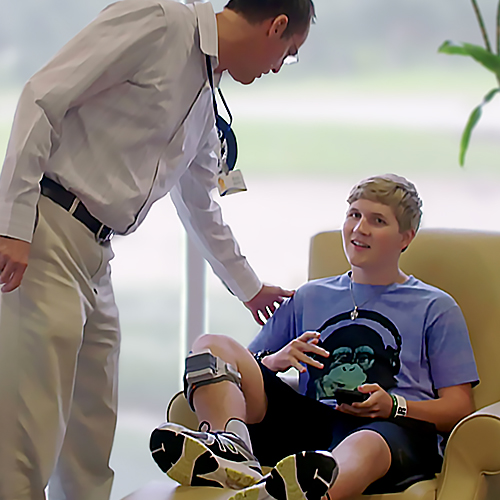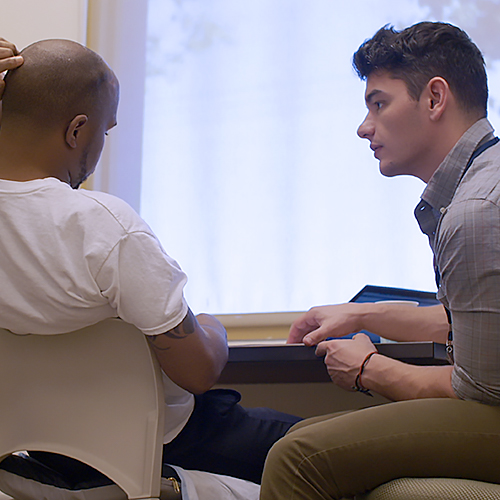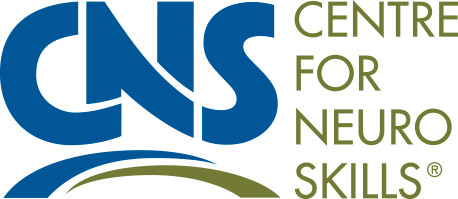Counseling
An essential aspect of treatment is supportive counseling and psychotherapy, both for the individual and the family. Rebuilding the patient’s life of relationships, work, intimacy, and self-esteem are core objectives of counseling offered at CNS. Spouses, children, friends, and loved ones may participate in one-on-one counseling and/or group therapy as part of the patient’s rehabilitation.
Brain injury impacts the family dynamic, and CNS provides a support network to help patients adjust to life transitions post injury. These include shifts in fundamental areas of life: physical, emotional, psychological, financial, work, and parenting. At CNS we treat the whole family, helping them understand brain injury and its impact. Issues addressed in individual counseling include:
- Changes in mood, thought patterns and behavior
- Expressing emotions about the injury: sadness, anxiety, anger, grief and loss
- Coping with stress related to the trauma
- Social Issues
 Known for its multidisciplinary approach, the patient’s clinical team collaborates frequently, enabling counselors to address daily issues in counseling sessions.
Known for its multidisciplinary approach, the patient’s clinical team collaborates frequently, enabling counselors to address daily issues in counseling sessions.
 Physical and Emotional Effects
Physical and Emotional Effects
Managing acute and chronic pain is another function of counseling, as is coping with any long term changes as a result of the injury. CNS offers conjoint therapy and support groups that help families process changes in the patient, relationship challenges, and behavior issues. Options include:
- Relationship support groups
- Family and/or individual counseling
- Household money management and responsibility training
- Adjustment to Disability group
- Social Skills group
- Participation in groups with others who have been injured
Family Counseling
At CNS, patients engage in their various therapy sessions while families are invited to share their experiences in family support groups and one on one counseling. Family therapists can offer support on such issues as:
- Financial concerns due to lost income if the patient was the primary support
- Role reversals if the spouse assumes new responsibilities in the relationship
- The effects brain injury has on a patient’s child and/or direct or indirect caregivers
Return to Work
Counseling also examines a patient’s work interruption or job loss as a result of injury, and the impact it has on self-worth. If the patient can return work, counselors can initiate job habituation through exposure therapy, which is a series of preparation exercises for returning to work. Patient and therapist may visit the work site, practice work related skills, and collaborate with occupational therapists to assess and build their work skill set. Counselors can also arrange work alternatives such as volunteering or helping other patients as methods of community reintegration.

